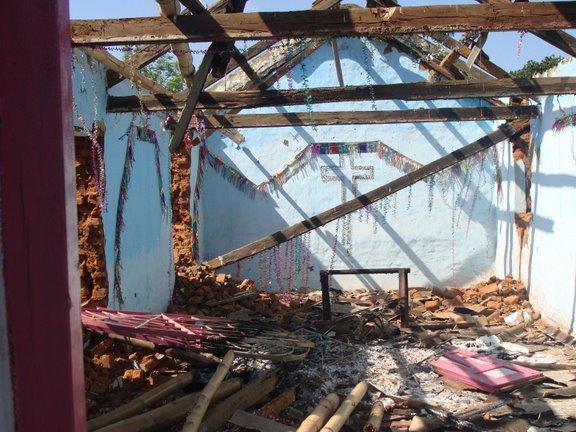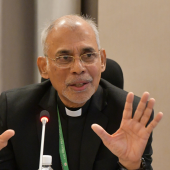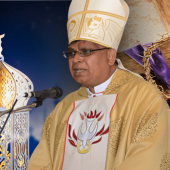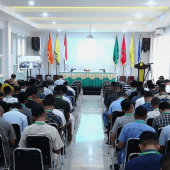Violence against Christians in India continues unabated, says ecumenical human rights group

An India-based ecumenical human rights group reports that there were 687 incidents of violence against Christians in 334 days of 2023, with as many as 531 incidents occurring in four north Indian states.
“It is a matter of fact that our country has been witnessing a sharp increase in targeted violence against Christians since 2014. According to the annual ranking by the Open Doors of the World Watch, India is ranked as the eleventh worst country on earth for the persecution of Christians,” said United Christian Forum (UCF) national president AC Michael in a press statement on December 14.
The New Delhi-based UCF has extended a toll-free helpline service (1-800-208-4545) since January 19, 2015, to those in distress and unaware of the law of the land and system.
There were 147 incidents of violence against Christians in 2014, 177 in 2015, 208 in 2016, 240 in 2017, 292 in 2018, 328 in 2019, 279 in 2020, 505 in 2021, 599 in 2022, and 687 in November 2023.
This is despite Article 25 of the Indian Constitution, which guarantees the right to choose any religion of one's choice.
“In our country today, we have so-called ‘Freedom of Religion Acts’ which are popularly known as ‘anti-conversion laws’ in 11 out of the 28 states wherein a person living in India is expected to seek permission from the government to follow a religion of his or her choice by filing written information with a revenue officer in contravention of UN convention,” said Michael, a former member of the Delhi Minority Commission.
From January until November 2023, UCF has received reports of 687 incidents of violence against Christians in 23 states of India, which is little over two incidents a day in a secular and democratic country.
Out of a total of 687 incidents, 531 incidents have taken place in four states of north India. Namely: Uttar Pradesh with 287 incidents, 148 in Chhattisgarh, 49 in Jharkhand, and 47 in Haryana.
Reported incidents of violence against Christians were as follows: 35 in Madhya Pradesh, 21 in Karnataka, 18 in Punjab, 14 in Bihar, 8 each in Gujarat, Tamil Nadu, and Jammu and Kashmir, 7 each in Rajasthan and Odisha, 6 each in Delhi and Maharashtra, 4 each in Uttarakhand, West Bengal, and Himachal Pradesh, 2 in Assam, 1 each in Andhra Pradesh, Goa, Chandigarh, and Daman and Diu.
Vigilante mobs comprising religious extremists in India often barge into prayer gatherings or round up individuals they believe are involved in forcible religious conversions.
With impunity, such mobs criminally threaten and physically assault people in prayer before handing them over to the police on allegations of forcible conversions. Outside police stations, people often witness communal sloganeering while the police stand as mute spectators.
There are other states, too, that saw well-orchestrated attacks on Christians. Chhattisgarh was responsible for displacing over 1000 Adivasi (tribal) Christians from their own homes and villages in 2022.
In 2023, Manipur state in northeastern India, located east of Bangladesh and at the border with Myanmar, witnessed the worst-ever violence, resulting in the death of 175 people and severe injuries to over 1000 individuals. Arsonists caused over 5000 cases of arson, burning and vandalizing 254 churches.
Despite widespread international condemnation of the impunity that attackers face, national and state governments have done little to ensure justice.
The People's Union for Civil Liberties published a report titled Criminalizing Practices of Faith, documenting police collusion with Hindutva groups and their turning a blind eye to offenses committed against Christians.
Radio Veritas Asia (RVA), a media platform of the Catholic Church, aims to share Christ. RVA started in 1969 as a continental Catholic radio station to serve Asian countries in their respective local language, thus earning the tag “the Voice of Asian Christianity.” Responding to the emerging context, RVA embraced media platforms to connect with the global Asian audience via its 21 language websites and various social media platforms.














